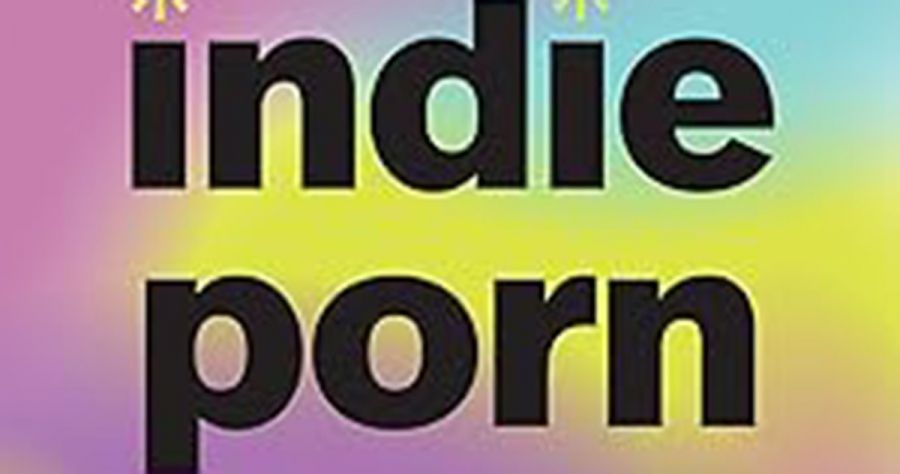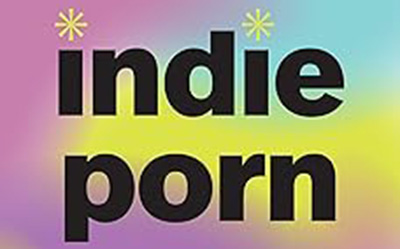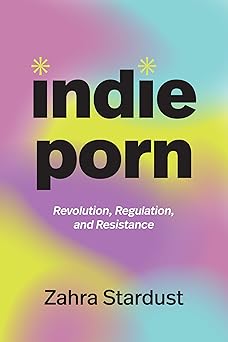
- Free Article: No
- Contents Category: Culture
- Review Article: Yes
- Article Title: Whore stigma
- Article Subtitle: An unapologetic dive into pornography
- Online Only: No
- Custom Highlight Text:
Zahra Stardust is, in her own words, ‘a sex worker in the academy’ who champions the ‘epistemology of whores’, a term she coined to describe the ‘unique lens through which sex workers know about the world’. As she impressively models in her first book, Indie Porn: Revolution, regulation and resistance, published in Duke University Press’s innovative Camera Obscura series, this epistemology is multifaceted and multi-purpose. Stardust, a research fellow at Queensland University of Technology, takes us behind the scenes, while expanding what a book about pornography can be. Against enduring ‘whore stigma’, which functions to keep sex workers at society’s margins and ‘sex’ within heteronormative bounds, Stardust flips the script. Sex workers, and in particular porn performers like herself and the many others whom she interviews and cites, have much to tell the rest of us about the algorithmic, gig economy world we all live in.
- Featured Image (400px * 250px):

- Alt Tag (Featured Image): Zora Simic reviews ‘Indie Porn: Revolution, regulation and resistance’ by Zahra Stardust
- Book 1 Title: Indie Porn
- Book 1 Subtitle: Revolution, regulation and resistance
- Book 1 Biblio: Duke University Press, $49.50 pb 328 pp
- Book 1 Cover Small (400 x 600):

- Book 1 Cover (800 x 1200):

- Book 1 Readings Link: https://www.readings.com.au/product/9781478031062/indie-porn--zahra-stardust--2024--9781478031062#rac:jokjjzr6ly9m
As Stardust writes, ‘the majority of books about pornography are written by people who do not make, watch or create pornography’. Some of the best-known titles are firmly in the anti-porn camp, and while there is a flourishing field of porn studies, with its own dedicated journal, research has tended to focus on consumption rather than on labour or the political economy of porn. Cognisant that ‘pornography’ has historically been and continues to be a deliberately hazy and politicised category subject to ‘state, tech, and administrative power and control’, Stardust takes as her focus ‘indie porn’. As she and others define it, ‘indie porn’ is both here and now, as practice and community, and a political and creative aspiration or horizon, currently constrained by ‘erotophobic regulatory paranoia’. With queer and feminist performers at the vanguard, indie porn aspires to ‘independence from hegemonic values and processes’, while having to navigate big tech, competing regulatory regimes, and a capacious porn industry ever ready to co-opt and exploit their labour and product. Under these conditions, Stardust stresses that political organising and coalition building is more urgent and necessary than ever, but also more difficult. Still, as she highlights in her opening chapters, indie pornographers have found imaginative ways not only to stay viable but also to extend the parameters of porn, as well as of political activism and community building. Examples include eco-sexual porn, queercrip porn, sex-education initiatives, and the development of ethical codes and protocols designed to protect workers and educate consumers.
Vignettes from Stardust’s life in porn are threaded throughout, showcasing ‘indie porn’ as a varied and global scene: making ‘old-school DIY porn’ in Australia and then skill-sharing at a ‘Pornocamp’ for independent feminist pornographers; the 2014 Feminist Porn Awards in Toronto, where the highlight for Stardust is the Feminist Porn Conference held alongside it; the 2015 Berlin Porn Film Festival, where Stardust takes part in a live-fisting and squirting demonstration alongside ‘pleasure activ-ists’; the Australian launches of the ground-breaking anthology Coming Out Like a Porn Star (2015), edited by American porn performer Jiz Lee, in which Stardust’s essay featured alongside contributions from iconic performers such as Annie Sprinkle; the inaugural 2020 San Francisco PornFilmFestival, which, due to Covid restrictions, is held entirely online; and most recently, shooting an ‘explicit documentary about porn star parents’, when she was six months pregnant.
Porn being the precarious job that it is, not all of Stardust’s gigs can be labelled ‘indie’ (her shoots for Picture and People magazines were censored to meet Australian classification requirements). What separates ‘indie’ from ‘mainstream’ porn can get fuzzy, the paradigmatic example being SuicideGirls, the ‘global adult community’ which has successfully commodified the indie-girl-with-tattoos aesthetic. In 2016, Stardust is excited ‘to shoot for a site which celebrates alternative beauty’, but quickly adapts to their extractive business model, where performers pay for access to their brand. Throughout, Stardust offers a robust critique of how the various pornographies that often fall under the banner of ‘indie’ – ‘DIY’, ‘ethical’, ‘real’, or ‘amateur’, and, yes, even ‘feminist’ and ‘queer’ – are not necessarily so. The ‘authenticity delusion’, as Stardust nimbly describes it, refers to how ‘amateur porn’ – often celebrated as the ‘good’ alternative to mainstream porn – can be as highly manufactured and staged as its supposed antithesis, including by valorising slim, white bodies and a narrow range of femininities.
All of the firsthand experiences Stardust shares in Indie Porn document a wider history and serve a larger purpose, whether it be emphasising indie porn content creation, community and politics, and/or demonstrating the conditions of labour under late capitalism and multiple regulatory regimes. Hers is no celebratory memoir, and Stardust is critical of the ‘wider cultural imperative for sex workers to describe their work as a kind of personal identity, a form of self-expression, a gratifying, rewarding, fulfilling experience or an altruistic endeavour with worthwhile social benefit’. This kind of special pleading, argues Stardust, while understandable as ‘a response to porn stigma’ and anti-porn activism, can be mistaken for ‘stating that pornography is always empowering and rarely work’. Stardust reorients sex-worker activism back to its foundational claim that ‘sex work is work’, bringing it up to date for a twenty-first-century audience and context. She maintains a consistent focus on porn workers over porn producers and business owners. Sometimes performers are also producers, especially in feminist and queer circles – Stardust offers plenty of examples, herself included – but not always, and the interests of porn workers and business owners in particular often diverge and conflict. PornHub, the Amazon of internet porn sharing websites, is an obvious example, and Stardust gives them due and illuminating attention. Astutely, she also scrutinises industry lobby groups, among them Australia’s Eros Association, whose political strategy of campaigning for the new classification category ‘Non-Violent Erotica’ (NVE), so that porn could be legally sold, spectacularly backfired late last century when conservative Senator Brian Harradine held a parliamentary screening of a ‘private collection of sex films’ that reportedly so disgusted Prime Minister John Howard that the sale of X18+ content remained illegal. The new classification was even narrower than the previous, with a ban on fetish content that remains in place.
The same government, Stardust reminds us, initiated the ongoing Northern Territory Intervention, where the ‘criminalization of porn possession played a role in the Australian government’s theft of Aboriginal land’. Stardust’s scope is international, but Australia is what she knows best, including as an advocate for sex worker rights (in addition to her PhD, she has a law degree). As well as providing thought-provoking sex-worker perspectives on recent developments such as the Online Safety Act, introduced in Australia in 2021, in Indie Porn Stardust traces a rich history of local sexual subcultures which continue to thrive despite a comparatively restrictive legislative environment.
A product of more than a decade of research, Indie Porn is at once deeply scholarly, unapologetically political, and joyously sex positive. Dense with detail and insight, it was also at times a demanding read, insofar as the material it contains could feasibly fill three books. Yet Stardust is a compelling writer who somehow balances sensible suggestions with utopian aspirations in a consistently convincing manner. She probably won’t win over readers hostile to the very existence of pornography, but for the rest of us – regardless of whether we consume porn or not – Indie Porn will reward close engagement.


Comments powered by CComment